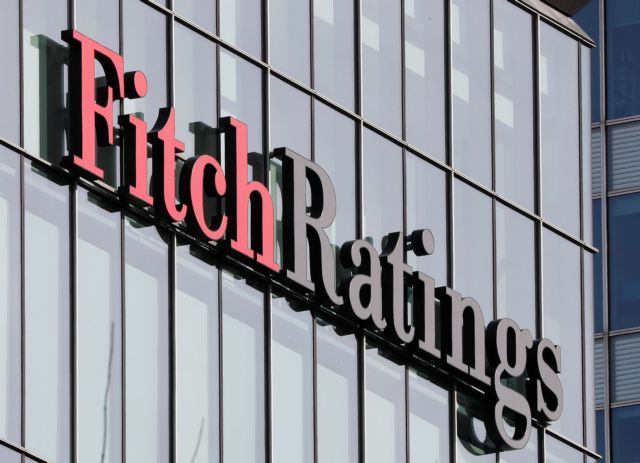
The announcement by the four largest Greek banks of an interest rate cap on performing domestic retail mortgages does not affect the banks’ ratings, Fitch Ratings says. The measure will restrict the benefit to profitability from higher interest rates but will support asset quality by limiting payment pressure on borrowers.
Eurobank (BB-/Stable), National Bank of Greece (BB-/Stable), Alpha Bank (B+/Stable) and Piraeus Bank (B/Positive) recently announced that they will absorb interest rate increases on performing domestic retail mortgage loans for 12 months from May 2023. Rates will be capped at the end-March 2023 reference rate minus about 20bp. Customers will still benefit if rates fall below the cap.
Profitability is healthy
Fitch expects the banks’ profitability to remain sound, with operating profit/risk-weighted assets at around 1.8% in 2023 despite forgone interest income of EUR100 million to EUR175 million from a 25bp-50bp rate increase. The cap could also reduce the pressure on the banks to raise retail deposit rates, mitigating the impact on profitability. Fitch expects ECB rates to peak 50bp above current levels by end-2023, before falling in 2024
Mitigation of pressures
The cap will mitigate near-term asset-quality pressures by limiting debt payments for customers struggling with higher living costs. We do not expect the application of the cap to result in loan reclassification to forborne or credit impaired, as it will be applied unilaterally by the banks. The cap also creates an incentive for payment discipline, as it only applies to performing loans.
Risks
The interest rate cap could put profitability at risk if it is extended beyond 12 months or if interest rates rise more than currently expected and banks are unable to limit pass-through rates to deposits. It also partly masks borrowers’ structural ability to service debt and could create cliff-edge risks to asset quality if mortgage rates increase materially when the cap expires. If it is extended, there is an increased risk that the banks will need to reclassify higher-risk loans that rely on the cap to remain performing.
The introduction of the cap follows government and social calls for banks to relieve affordability pressures on households from interest rate rises. The four biggest banks have already implemented an interest rate subsidy scheme for vulnerable low-income borrowers, launched in December 2022, which was more limited in scope and impact than the interest rate cap.
Fitch expects banks’ profitability to remain healthy, with operating weighted assets at around 1.8% in 2023, despite lost interest income of €100m to €175m from the 25 basis point rate hike basis up to 50 basis points.
Morgan Stanley is on the same wavelength
The view of Morgan Stanley is similar, which a few days ago announced that it does not see any impact on the balance sheets of Greek banks from the measure of keeping mortgage interest rates stable, starting from May 2023 for one year.
As the US bank reported, this is an initiative by banks to support mortgage borrowers by limiting potential asset quality risks to the system.
Morgan Stanley continues to be positive on Greek banks and does not foresee a material negative impact, as the forecasts for 2023 are based on an ECB interest rate of 2.5-2.8%, so there is no negative impact on the banks due to this of the measure.
However, it will limit further upside from rate hikes in the mortgage portfolio above 3% with mortgages accounting for 26% of lending. In essence, this initiative is a horizontal measure that provides a bonus to those borrowers who continue to make payments on time.
It is recalled that the investment bank maintains the “overweight” recommendation for the shares of Piraeus and Eurobank, with target prices of 2.24 euros and 1.45 euros and the “equal positions” recommendation weight) for National Bank and Alpha Bank with target prices of 4.86 euros and 1.37 euros respectively.
“Buy” recommendation from HSBC
Yesterday, HSBC announced that it maintains its “buy” recommendations for all four systemic Greek banks, pointing out that the 15% reduced valuations from the high provide a good entry opportunity for investors.
The British bank prefers the shares of National Bank and Piraeus Bank. The target prices are 3.35 euros (from 3.30 euros) for Piraeus Bank, 6.75 euros (from 5.20 euros) for National Bank, 1.60 euros for Eurobank (unchanged) and 1.45 euros (from 1.40 euros) for Alpha Bank.
“Greek banks appear attractive at 0.55 times price-to-book value (P/TBV) ratios, 20% below emerging markets and 25% below European banks. We still see the best risk/reward combination in Piraeus Bank at 0.46 times, a valuation that seems unjustified for the profitability ratio it will display.
Latest News

Airbnb: Greece’s Short-Term Rentals Dip in March Amid Easter Shift
Data from analytics firm AirDNA shows that average occupancy for short-term rentals dropped to 45% in March, down from 49% the same month last year.

Easter Week in Greece: Holy Friday in Orthodoxy Today
At the Vespers service on Friday evening the image of Christ is removed from the Cross and wrapped in a white cloth

Meloni and Trump Meet in Washington, Vow to Strengthen Western Ties
“I am 100% sure there will be no problems reaching a deal on tariffs with the EU—none whatsoever,” Trump stressed.

ECB Cuts Interest Rates by 25 Basis Points in Expected Move
The ECB’s Governing Council opted to lower the deposit facility rate—the benchmark for signaling monetary policy direction—citing an updated assessment of inflation prospects, the dynamics of underlying inflation, and the strength of monetary policy transmission.

Current Account Deficit Fell by €573.2ml Feb. 2025: BoG
The improvement of Greece’s current account was mainly attributed to a more robust balance of goods and, to a lesser extent, an improved primary income account

Hellenic Food Authority Issues Food Safety Tips for Easter
Food safety tips on how to make sure your lamb has been properly inspected and your eggs stay fresh.

Greek Kiwifruit Exports Smash 200,000-Ton Mark, Setting New Record
According to data by the Association of Greek Fruit, Vegetable and Juice Exporters, Incofruit Hellas, between September 1, 2024, and April 17, 2025, kiwifruit exports increased by 14.2%.

Easter Tourism Boom: Greece Sees 18.3% Surge in Hotel Bookings
Among foreign markets, Israel has emerged as the biggest growth driver, with hotel bookings more than doubling—up 178.5% year-on-year.

Greece to Launch Fast-Track Tender for Offshore Hydrocarbon Exploration
Last week, Papastavrou signed the acceptance of interest for the two Cretan blocks, while similar decisions regarding the two Ionian Sea blocks were signed by his predecessor

American-Hellenic Chamber of Commerce to Open Washington D.C. Branch
AmCham's new office aims aims to deepen U.S.-Greece economic ties and promote investment and innovation between the two countries







![Πλημμύρες: Σημειώθηκαν σε επίπεδα ρεκόρ στην Ευρώπη το 2024 [γράφημα]](https://www.ot.gr/wp-content/uploads/2025/04/FLOOD_HUNGRY-90x90.jpg)




![Airbnb: Πτωτικά κινήθηκε η ζήτηση τον Μάρτιο – Τι δείχνουν τα στοιχεία [γράφημα]](https://www.ot.gr/wp-content/uploads/2024/07/airbnb-gba8e58468_1280-1-90x90.jpg)

























![Airbnb: Πτωτικά κινήθηκε η ζήτηση τον Μάρτιο – Τι δείχνουν τα στοιχεία [γράφημα]](https://www.ot.gr/wp-content/uploads/2024/07/airbnb-gba8e58468_1280-1-600x500.jpg)


 Αριθμός Πιστοποίησης
Αριθμός Πιστοποίησης